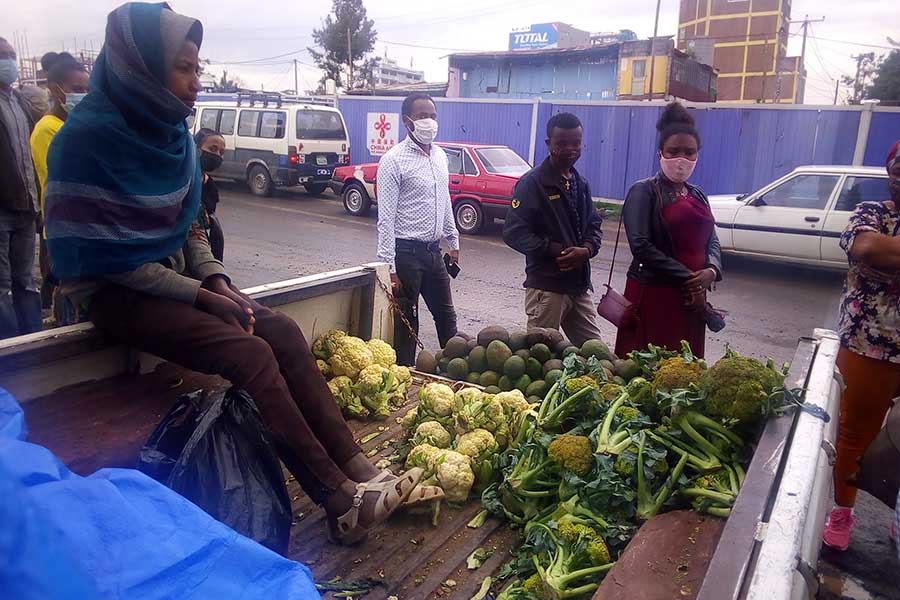
Fortune News | Feb 01,2020
Nov 21 , 2018
By Asseged G. Medhin
If we are to be effective at reducing corruption, we ought to do more than combating it in the literal sense of the word. It is not that laws and effective enforcement do not work, but this focus often overshadows attitudinal shortcomings that we must change.
While the political and economic circumstances are there, the societal factors also contribute to how society has come to view corruption. It is not only low standards of living or lack of accountability that can exacerbate corruption but the belief that taking the illegal path is sometimes a legitimate way of getting by.
A change in attitude, a sum of how we view our environment and the people around us, will produce a tremendous outcome on value systems, which ultimately shapes resource management.
The core of the model for combating corruption, however complex the environment one is working with, should be to sow the seeds of knowledge and value systems in individuals that what is earned is better than what is gotten. This is especially important in a developing country where the necessary tools for arresting corruption have been missing and the attitude, that under some circumstances corruption is fine, runs rampant.
If we ask of the most corrupt person we know whether she is content or not, the reply would probably be “no”. That person will explain that he is corrupt because everyone else is. The experiences from around the world on corrupt bureaucrats or business persons who evade taxes show that they are doing what they are doing because of overt or subtle compulsions. In the core of their hearts, they do not like it.
It is not that surprising that people who are breaking laws by evading taxes, taking bribes, favouring kin could be of any religious, political or ideological creeds. They spend liberally on charitable organisations, building religious institutions and helping the needy; surely, they really are not vicious people. Sometimes, they even are respected by society and their near and dear ones but are not honest people according to the laws of the government.
There are societies where corruption even on the smallest of scales is a great taboo, while it has become a sort of mild nuisance in many African countries. This could be in government institutions or share companies, where under the table dealings have been going on for far too long, that it has become subconsciously acceptable.
A strong value system is thus diluted as a result of corruption, and the community becomes more spoiled with corruption becoming common practice. We begin to have failing institutions, barely trusted by the public, and then economies that stagnate while the few are indeed making it.
A major contributing factor for this may be unaccountability. But the residual factors are such that impunity grows and assimilates the new recruits that come in its way. The political and economic factors that lead to corruption also become cultural. The introduction of strong laws and better enforcement thus would not be able to wash away the ill thoroughly.
An additional effort ought to be made to ensure that education systems and work cultures can encourage and reward an honest day’s work. We have to be able to make corruption taboo by instituting robust and workable good governance frameworks that can shape the value system.
There is no place in the world where corruption does not exist, but there are those where it is far less likely than others to take place.
African countries have not been one of these for such a long time, and even if there is a movement toward ending it, the adage that “old habits die hard” will continue to apply unless a cultural war is waged against it.
PUBLISHED ON
Nov 21,2018 [ VOL
19 , NO
969]


Fortune News | Feb 01,2020

Obituary | Apr 27,2025

Radar | Apr 03,2023

Fortune News | May 23,2021

Radar | Mar 04,2023

Commentaries | Jun 22,2019

Radar | Aug 29,2020

View From Arada | Apr 26,2025

Viewpoints | Oct 14,2023

Viewpoints | Jun 08,2019

Photo Gallery | 178829 Views | May 06,2019

Photo Gallery | 169027 Views | Apr 26,2019

Photo Gallery | 159879 Views | Oct 06,2021

My Opinion | 137117 Views | Aug 14,2021
Commentaries | Oct 25,2025

Dec 22 , 2024 . By TIZITA SHEWAFERAW
Charged with transforming colossal state-owned enterprises into modern and competitiv...

Aug 18 , 2024 . By AKSAH ITALO
Although predictable Yonas Zerihun's job in the ride-hailing service is not immune to...

Jul 28 , 2024 . By TIZITA SHEWAFERAW
Unhabitual, perhaps too many, Samuel Gebreyohannes, 38, used to occasionally enjoy a couple of beers at breakfast. However, he recently swit...

Jul 13 , 2024 . By AKSAH ITALO
Investors who rely on tractors, trucks, and field vehicles for commuting, transporting commodities, and f...

Oct 25 , 2025
The regulatory machinery is on overdrive. In only two years, no fewer than 35 new pro...

Oct 18 , 2025
The political establishment, notably the ruling party and its top brass, has become p...

Oct 11 , 2025
Ladislas Farago, a roving Associated Press (AP) correspondent, arrived in Ethiopia in...

Oct 4 , 2025
Eyob Tekalegn (PhD) had been in the Governor's chair for only weeks when, on Septembe...

Oct 25 , 2025 . By YITBAREK GETACHEW
Officials of the Addis Abeba's Education Bureau have embarked on an ambitious experim...

Oct 26 , 2025 . By YITBAREK GETACHEW
The federal government is making a landmark shift in its investment incentive regime...

Oct 29 , 2025 . By NAHOM AYELE
The National Bank of Ethiopia (NBE) is preparing to issue a directive that will funda...

Oct 26 , 2025 . By SURAFEL MULUGETA
A community of booksellers shadowing the Ethiopian National Theatre has been jolted b...